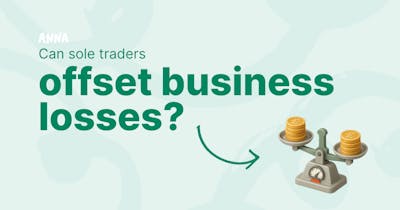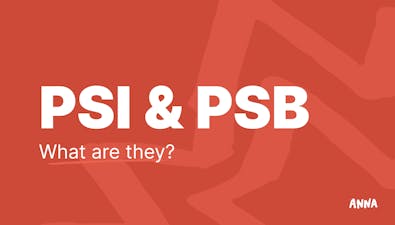
Your EOFY Survival Guide for Australian Small Business/Companies


EOFY doesn’t have to be scary. Our survival guide helps Aussie small businesses/companies tackle tax, BAS, and compliance without the headache, so you can wrap things up with confidence

Quick Summary
- Always keep your books tidy: Keep financial records and bank reconciliations up to date
- Start early: May is the ideal time to start planning for tax and collating key documents
- Finalise payroll: Complete STP reporting and ensure all employee entitlements are paid on time
- Year-end adjustments: Post all adjusting journals to finalise your accounts for the financial year
- Lodge and pay on time: Review your business tax obligations to stay compliant
Why EOFY Matters for Small Companies
For directors and owners of Australian small proprietary companies, End of Financial Year (EOFY) is more than just lodging a tax return. It’s your annual opportunity to assess your business health, plan for cash flow and tax savings, and make sure you’re compliant with the ATO, ASIC, and other regulators. Yes, it’s a series of obligations, but it’s also a good time to take a snapshot of your company and make sure everything is heading in the right direction. So with that in mind, here’s your comprehensive guide to getting your business EOFY-ready.
When is EOFY?
For most small businesses in Australia, the financial year ends on 30 June each year. Each financial year covers the period from 1 July to 30 June.
Why start early in May?
As with most things in life, it’s not a good idea to leave your EOFY to the last minute.
May is the perfect time for small business owners to get ahead of EOFY. Starting early gives you time to organise records, identify deductions, review cash flow, and make strategic decisions before 30 June, without a panicky scramble before the deadline.
Accounts get busy! From March onwards, accountants enter the most hectic period, finalising prior-year lodgements, making it harder to get their time and attention - and if you wait until they contact you, you risk missing opportunities for tax savings, cash flow planning, and stress-free compliance.
Get your records in order
Before the admin piles up, take some time to get organised. Key tasks for small business owners include:
- Reconciling all business bank accounts, credit cards, loans, and petty cash
- Making sure income and expenses are correctly categorised and recorded
- Collating all your records for tax-sensitive items. These include:
- Legal feesHome office expensesAsset purchases or improvementsLoan agreements and repayment schedulesMaterial business expenses
- Verifying your accounts receivable (that’s money owed to you) and accounts payable (money you owe)
- Reviewing your insurance policies
- Checking that your ATO and ASIC obligations are up to date, including:
- Outstanding BAS/IAS, income tax, FBT, PAYG instalmentsOutstanding super paymentsOutstanding ASIC fees
- Renewing business name registrations
- Reviewing company details, and storing constitution and governance documents
With ANNA Money +Taxes, you can upload and attach evidence directly to your transactions, automating your bookkeeping all year round, making EOFY preparation easy and hassle-free. Your taxes are much simpler if you keep on top of them throughout the year, rather than leaving them until the paperwork has mounted up.
Planning before 30 June
Good planning before EOFY can help reduce your tax liability (that’s how much tax you owe) and improve your cash flow. By reviewing your business activities and financial position early, you can take advantage of available concessions, maximise the deductions, and set yourself up for a smoother year ahead.
Have a think about these strategies before 30 June:
- Do a stocktake and write off obsolete or slow-moving inventory
- Write off any bad debts
- Delay issuing invoices if it benefits your tax position (deferring income to next year)
- Review and apply small business tax concessions
- Prepay expenses such as superannuation, rent, insurance, and subscriptions
- Take advantage of the instant asset write-off for eligible assets purchased and installed by 30 June
- Prepare budgets and forecast your tax position to plan cash flow and payments
- Review Director Loan balances and Division 7A risks
- Evaluate your business structure and ask for advice if you need it
- Set aside money for income tax, June BAS, super, and other tax obligations
- Ask for Quantity Surveyors (depreciation report) for business premises refurbishment if applicable
- Talk to experts if you’re unsure of anything
Actions after 30 June
Once the financial year closes, finalise all pending tasks to make sure you’re compliant and a have a smooth, straightforward transition into the new year. You should also:
- Collect together all your year-end documents, including:
- Bank and credit card statementsYear-end tax summaries for investmentsLoan statements with updated balances
- Finalise payroll processing and lodge STP reports by 14 July
- Lodge and pay the June BAS and super by 28 July
- Record year-end adjustments, including but not limited to:
- Division 7A prepayments, accruals, provisionsTrading stock adjustmentsDepreciation and amortisationHire purchase adjustmentsAdjusting entries due to prior-year timing difference
- Review major sales and purchases
- Prepare a Profit & Loss statement and compare results with last year
- Reconcile Balance Sheet items and make sure supporting documents are on file
- Reconcile ATO tax liabilities, including GST, PAYGW, and income tax
- Review Director Loan accounts
- Assess available tax incentives and eligibility, such as:
- Prior year lossesAvailable franking creditsInstant asset write-offR&D tax incentivesCapital gains/lossesEntertainment and donationsLate super paymentsBad debtsFines and penaltiesCapital expenses
- Know your due dates and lodge your company income tax return, taxable payments annual report (TPAR) for certain industries
- Finalise budgets, cash flow forecasts, and business plans for the new financial year
Final thoughts
As you can imagine, EOFY can feel overwhelming - but with the right preparation, it becomes an opportunity, not a headache. By starting early, staying organised, and making informed financial decisions, you can maximise your tax savings, keep your business compliant, and set yourself up for a stronger year ahead. Whether you prefer to DIY or let technology handle the heavy lifting, tools like ANNA’s +Taxes can take the stress out of EOFY and help your business run smoothly all year round. Because you started a business to grow, not to do your taxes!
Frequently asked questions
What’s the difference between EOFY, Financial Year, Calendar Year and tax time?
In Australia, most small businesses follow a financial year that runs from 1 July to 30 June. EOFY (End of Financial Year) is 30 June, which is the cut-off date for your business’s annual financial reporting and tax obligations. A calendar year, on the other hand, runs from 1 January to 31 December. “Tax time” refers to the period when you prepare and lodge your tax return for the financial year, which generally begins on 1 July
What are the most common EOFY mistakes for small businesses?
• Leaving record-keeping until the last minute
• Missing out on deductions because of poor documentation
• Forgetting to write off bad debts
• Not reconciling payroll and superannuation before finalisation
How can I make EOFY easier next year?
Keep your books up to date year-round, use tools like smart receipt scanner, invoice generator, auto-categorisation, and schedule quarterly check-ins with yourself and tax experts
At ANNA we’re always happy to answer your questions
What happens after EOFY 30 June?
After EOFY, you’ll finalise your accounts and payroll, prepare your June BAS, income tax return, and meet ATO lodgement deadlines. You’ll also issue payment summaries (if required) and lodge any annual reports such as taxable payments annual report (TPAR) for certain industries
Are there any small business tax concessions I should know about?
Yes, depending on eligibility, you might be able to access:
• BASE rate entity
• Instant asset write-off
• Simplified trading stock rules
• Prepayment 12-month rule
• GST reporting concessions
• CGT concessions
• Small business rollover concessions
Concessions may change over time, so it’s a good idea to refer to the ATO website for the most up-to-date information OR
Talk to ANNA in-house tax expert today what concessions might be available to you
What are the key due dates after 30 June?
• 14 July: Lodge Single Touch Payroll (STP) finalisation for employees
• 28 July: Lodge and pay June BAS and superannuation
• 28 August: Lodge and pay Taxable payments annual report (TPAR), if applicable
• Tax return deadline: Varies depending on whether you lodge yourself, usually 28 Feb or through a tax agent, usually 15 May.
Deadlines may change based on your circumstances, so check the ATO website or check the obligation due dates in your ATO online services account for the most accurate information OR talk to ANNA in-house tax expert today to find out what is your incoming tax obligations
Disclaimer:
This content is general information for small businesses. You can only use the document for your noncommercial purposes. In no event shall we be held liable for any claims arising due to, or dependencies on the accuracy and completeness of the content provided. ANNA+Taxes does not provide personal or professional financial, accounting or tax advice and you should consult with external professionals for advice tailored to your situation prior to making any decisions.






